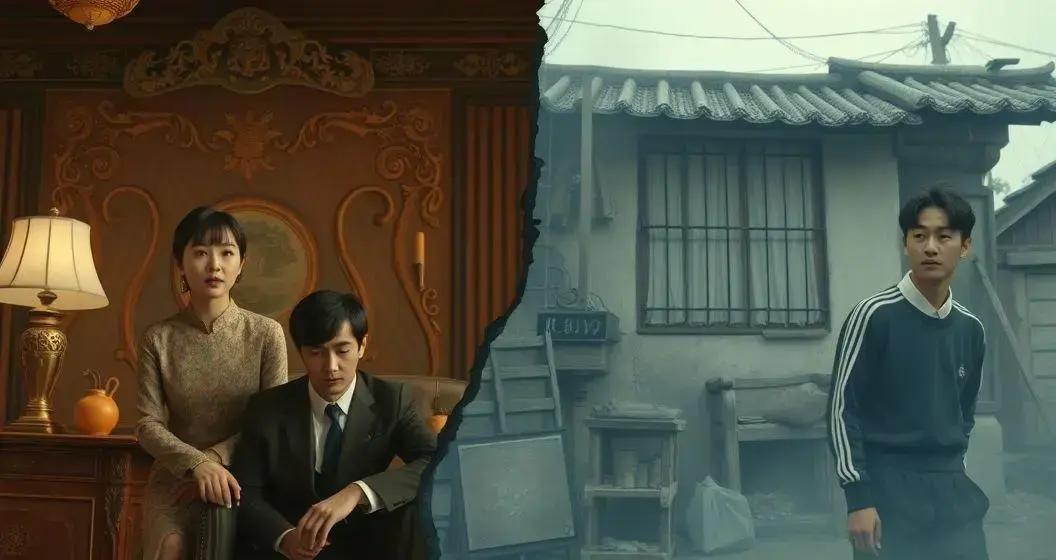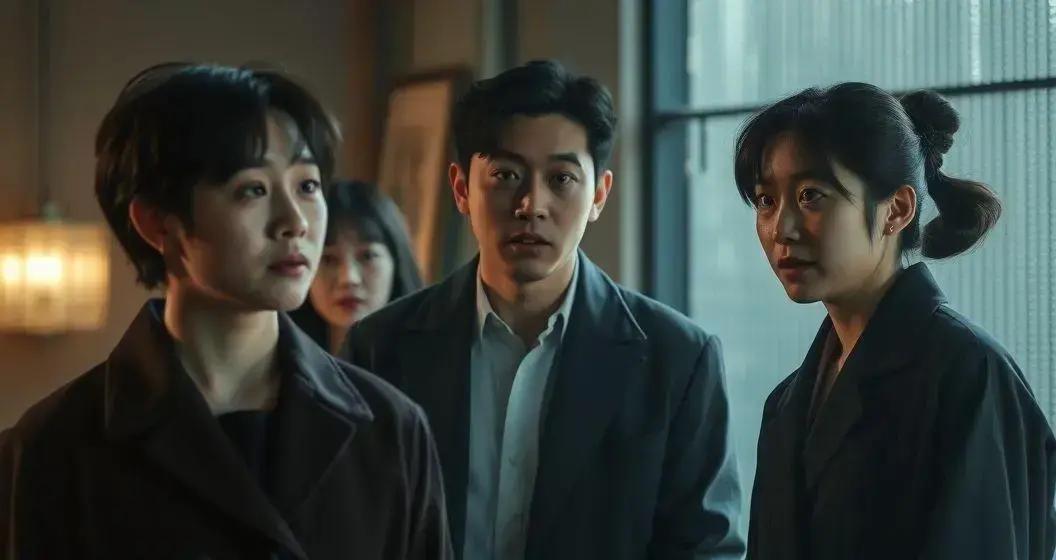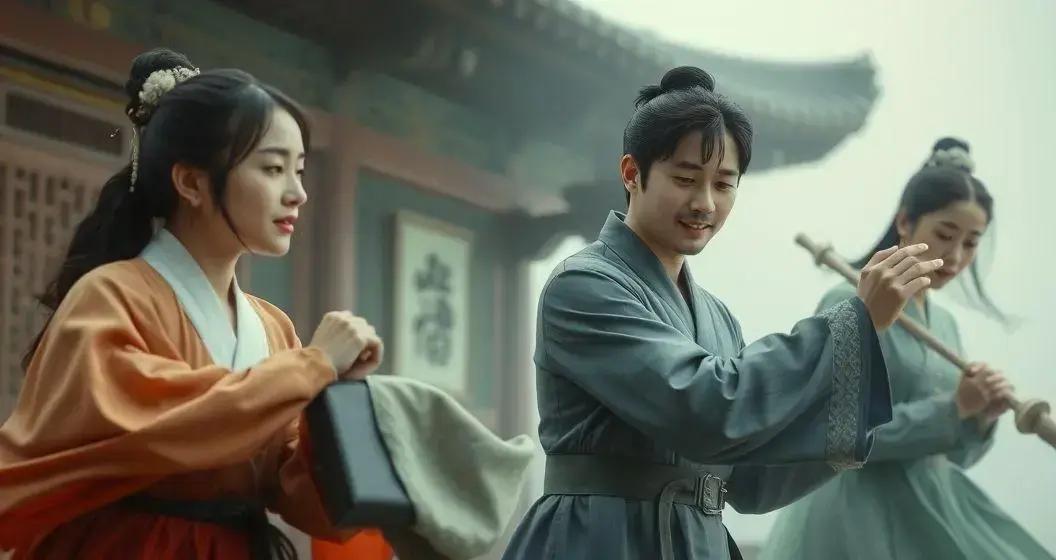Korean Drama Tropes: Exploring the Captivating Clichés and Themes
Advertisements
Dive into the world of **Korean drama tropes**, where captivating clichés and intriguing themes abound. From the classic love triangle to tales of the rich versus the poor, these elements have captured the hearts of viewers worldwide. Whether you’re a fan of the mysterious amnesiac character arc or the resilient female lead, there’s something for everyone. We’ll explore these common themes and more, including those unexpected plot twists that leave you craving for more episodes. Ready to unravel these fascinating aspects of Korean storytelling?
The Classic Love Triangle in Korean Dramas
The classic love triangle is a staple theme in Korean dramas, captivating audiences with its emotional depth and moral dilemmas. Typically, you find two alluring characters vying for the affection of a seemingly ordinary protagonist. This setup often leads to emotional conflicts that pull viewers into the drama, creating a loyal fanbase eager for resolution.
In these narratives, one suitor is often wealthy and polished, providing a contrast to the other, who might be humble but deeply loving. The tension created by these opposing forces heightens the drama, keeping viewers on the edge of their seats. Fans relish the unpredictable nature, as alliances shift and the protagonist’s heart wavers.
Iconic Examples of Love Triangles
Several iconic Korean dramas like ‘Boys Over Flowers’ and ‘The Heirs’ showcase the love triangle trope with great success. These stories often endear us to characters who display personal growth or profound sacrifice, providing a rich narrative experience. Whether you’re team ‘rich inheritor’ or ‘underdog sweetheart’, these stories make a strong emotional impression that lingers long after the credits roll.
The classic love triangle trope not only provides romantic tension but also serves as a tool for socio-economic commentary and character development. Through each character’s journey, viewers reflect on issues such as class disparity, self-discovery, and the nature of true love.
Tales of Rich vs Poor in Korean Narratives

Korean dramas often portray the compelling tales of rich versus poor, a theme recurring throughout many storylines. These narratives explore the deep divides within society, shedding light on class disparity and social mobility. Characters often navigate worlds set apart by wealth, with interactions that challenge their beliefs and values.
Rich characters typically embody traits of privilege and power, sometimes hiding vulnerabilities beneath their opulence. In contrast, poorer characters often display resilience and determination, striving to overcome their circumstances through grit and ingenuity. These interactions between classes provide fertile ground for drama, eliciting both tension and empathy from viewers.
Impactful Storylines
Stories such as ‘Secret Garden’ and ‘Cinderella and Four Knights’ exemplify how love crosses economic boundaries, forcing characters to question societal norms and personal aspirations. Through such narratives, audiences witness the nuances of love, sacrifice, and ambition, resonating with viewers who reflect on their prejudices and assumptions.
These dramas do more than entertain; they critique and highlight socio-economic issues, motivating dialogues about fairness, opportunity, and justice. Whether it’s about a humble protagonist winning over a corporate world or a self-made hero challenging the status quo, these tales remain poignant and universal.
The Mysterious Amnesiac Character Arc
The mysterious amnesiac character arc is a compelling trope in many Korean dramas. These characters often wake up with no memory of their past, creating immediate intrigue and tension. As they attempt to piece together their lives, viewers are drawn into a complex narrative full of twists and revelations.
Commonly, the amnesiac character is linked to significant plot developments, often carrying secrets that can upend the lives of those around them. Their journey to recovering memory becomes a pivotal part of the story, filled with emotional highs and lows. This mystery not only captivates the audience but also enriches the drama’s thematic depth.
Exploring Identity and Relationships
Amnesia in dramas like ‘Winter Sonata’ or ‘Memories of the Alhambra’ serves as a device for exploring identity and relationships. As these characters rebuild their lives, they form new connections, often questioning what defines friendship and love beyond shared history. The audience is compelled to ponder how identity is shaped by memories.
This storyline often intricately connects with other elements such as crime, romance, or fantasy, making it adaptable across genres. By uncovering hidden truths and rebuilding relationships, these characters offer viewers a layered and emotionally resonant experience.
Unexpected Plot Twists You Can’t Forget

Unexpected plot twists in Korean dramas keep viewers on the edge of their seats, transforming ordinary storylines into unforgettable experiences. These twists often redefine the entire narrative, catching audiences by surprise and intensifying the emotional impact. With their knack for the unexpected, Korean dramas showcase storytelling that demands attention and leaves lasting impressions.
One common method involves hidden identities revealed at critical moments, altering relationships and alliances. Whether it’s discovering a character’s true heritage or unveiling a secret agenda, these revelations not only shock viewers but also add complexity to the plot. They compel audiences to re-evaluate everything they knew about the characters.
Memorable Twists in Dramas
Dramas like ‘Cheese In The Trap’ and ‘Sky Castle’ master the art of deploying twists that are both plausible and mind-bending. Intricately layered plots and unexpected connections between characters contribute to making these twists feel organic yet astonishing.
Often, fate plays a huge role, turning events in ways viewers least expect. By presenting characters with choices and situations that defy logic yet seem destined, dramas invite viewers to question free will and destiny. These narratives delve into themes of karma and consequence, enriching the viewing experience with philosophical undertones.
The Resilient Female Lead: A Staple Character
The resilient female lead is a staple in Korean dramas, often portrayed as strong, independent, and determined, overcoming adversity with grace and tenacity. These characters provide a refreshing contrast to traditional portrayals, embodying empowerment and strength. Viewers are drawn to their journeys, as they often face challenges that test their resolve yet emerge resilient.
These characters frequently find themselves in situations that require cleverness and courage, standing their ground against antagonists or societal norms. Their stories resonate with audiences as they navigate complex emotions and relationships, breaking free from stereotypes and showcasing incredible growth and self-discovery.
Notable Strong Female Protagonists
Dramas such as ‘Strong Woman Do Bong Soon’ and ‘My ID is Gangnam Beauty’ highlight leads who inspire through their personal journeys. Whether it’s dealing with work challenges or confronting personal insecurities, these characters often grow not just in their story arcs, but inspire growth in those around them as well.
Through their strength, resilience, and vulnerability, these female leads offer more than entertainment; they challenge viewers to rethink traditional gender roles and embrace confidence in adversity. This connection to real-life struggles makes their stories relatable and impactful.
How Time Travel Is Explored in Korean Dramas

Time travel in Korean dramas opens doors to endless possibilities, intertwining moments across different eras. This captivating concept often fuels stories with intrigue and nostalgia. Characters typically find themselves transported to different periods, offering a unique backdrop for examining destiny, love, and history. Viewers are enchanted by the opportunity to witness how past actions influence the present and future.
These narratives explore the idea of altering timelines, often creating moral dilemmas about whether events should or could be changed. The complexity of moving between timelines provides depth and unpredictability, making each storyline unique and thought-provoking.
Fascinating Time Travel Dramas
Dramas like ‘Signal’ and ‘Rooftop Prince’ richly explore these themes, where characters face challenges that test their understanding of fate. Time travel becomes more than a mechanism for storytelling; it allows for deep exploration of characters as they grapple with the consequences of their journeys.
These storylines often resonate with viewers by suggesting that time is fluid and love transcends eras. As characters navigate through time, they evoke emotions and questions about life’s journey and whether we are truly in control of our paths.
Exploring the Timeless Allure of Korean Drama Tropes
Korean drama tropes captivate audiences with their rich narratives and emotional depth. From the intricate love triangles to tales of rich and poor, these dramas explore themes that transcend cultural boundaries. Characters, whether amnesiacs piecing together their pasts or those experiencing unexpected plot twists, provide stories filled with suspense and charm.
The resilient female leads stand as pillars of strength and empowerment, offering a fresh take on traditional narratives. In exploring time travel, these dramas knit stories across eras, challenging viewers to ponder the nature of time and fate. Each trope serves as a testament to Korean drama’s ability to capture the human experience, making audiences reflect, relate, and rejoice.
With compelling storylines that challenge conventions and embrace emotions, Korean dramas continue to leave a lasting impact, proving that the art of storytelling knows no bounds, captivating hearts across the globe.
